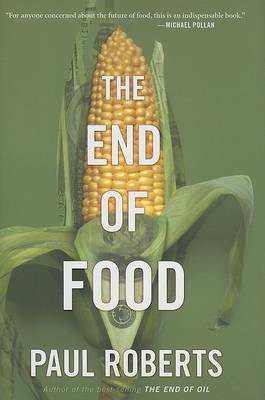
With an insightful global approach, Paul Roberts investigates the startling truth about the way we make, market, consume, and even think about food, and how this system is no longer compatible or safe for the billions of consumers that it was built to serve. The emergence of large-scale and efficient food production changed forever our relationship with food and ultimately left a vulnerable and paradoxical system in place. Over 1.1 billion people worldwide are 'over-nourished,' according to the World Health Organization, and are at risk of obesity-related illness, while roughly as many people are starving. Meanwhile, the natural systems all food is dependent upon have been irreparably damaged by chemicals and destructive farming techniques.The pressures of low-cost food production cause contamination and disease, and big food consumers such as China and India are already planning for tightened global food supplies - the era of superabundance seems to be behind us. Vivid descriptions, lucid explanations, and fresh thinking make "The End of Food" uniquely able to offer a new and accessible way to understand the vulnerable miracle of the modern food economy.
Roberts presents clear, stark visions of the future and helps us identify the decisions both personal and global that we must make to survive the demise of food production as we know it.
Not as entertaining or as engaging as Michael Pollan or Joanna Blythman this is an interesting, if Amero-centric, look at food and the food industry as it stands and it's race to the bottom.
This was an interesting book to read while Ireland had another food crisis, where industrial grade (read cheap) oil was added to pig feed (loaded with dioxins), potentially causing a lot of problems for purchasers, producers and farmers. Much of this type of thing was discussed in this book and some of the issues that caused it were raised.
It's a book many people need to read and ask themselves about their relationship with their food, unlike some other it doesn't offer any solutions, just questions and there were places where it just lost me in a sea of data. If I was asked to recommend a book on this topic I'd be less likely to recommend this and more likely to recommend Pollan or Blythman.
Reading updates
-
Started reading
-
9 December, 2008:
Finished reading
-
9 December, 2008:
Reviewed
